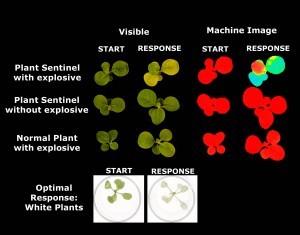Recent Medford Lab Publications
Coming Soon! Medford Lab Develops Toggle Switch
Coming Soon! Medford Lab Develops Synthetic Biology Technology for Water Relations
Engineering synthetic regulatory circuits in plants, Plant Science, August 2018.
Growing beyond: Designing plants to serve human and environmental interests, Current Opinion in Systems Biology, October 2017.
Computational design of environmental sensors for the potent opioid fentanyl, eLife, September 2017.
Advancing crop transformation in the era of genome editing, The Plant Cell, July 2016.
Towards programmable plant genetic circuits, The Plant Journal, July 2016.
Quantitative characterization of genetic parts and circuits for plant synthetic biology, Nature Methods, January 2016.
A general strategy to construct small molecule biosensors in eukaryotes, eLife, December 2015.
June Medford and Ashok Prasad on the challenges and the future of Plant Synthetic Biology, in Science on 10 October 2014.
Plant Synthetic Biology – What is it?
The Medford Lab at Colorado State University uses synthetic biology to redesign plants with useful traits and answer fundamental questions about natural processes. At its heart, synthetic biology differs from genetic engineering in its use of mathematical analysis, modeling, and orthogonal genetic parts to produce organisms with specialized functions. Synthetic biology in plants is a burgeoning field that shows great promise in areas such as bioenergy and security.
We have already developed a plant-based system with computer-designed receptors that activate a synthetic signal transduction pathway and trigger a transcriptional response. Using the tools of synthetic biology, we continue to adapt this system to new inputs and outputs. These outputs could include accumulation of biofuels, flowering or a visual response. At the same time, our investigations lead us to greater insights into how native molecules work. Our system is modular, allowing us to dissect fundamental plant processes. We are also developing digital genetic controls to allow precise regulation of our synthetic traits.
Medford Lab Projects
…Plant Sentinels
 We have developed a genetic circuit that allows a plant to detect a substance and report on its presence in a way that people or cameras can see. The system has several components: a computer-designed protein custom designed to detect the substance, a synthetic “biological wire” pathway that moves the detection signal into the nucleus, and any one of a variety of readouts. Thanks to its highly modular design, this basic system can be adapted to a wide variety of uses including detecting environmental pollutants. You can read about our first Plant Sentinel, capable of detecting TNT, here.
We have developed a genetic circuit that allows a plant to detect a substance and report on its presence in a way that people or cameras can see. The system has several components: a computer-designed protein custom designed to detect the substance, a synthetic “biological wire” pathway that moves the detection signal into the nucleus, and any one of a variety of readouts. Thanks to its highly modular design, this basic system can be adapted to a wide variety of uses including detecting environmental pollutants. You can read about our first Plant Sentinel, capable of detecting TNT, here.

…Enhancing Production of Bioenergy Crops & Their Controls
We are applying synthetic biology principles to bioenergy production. This work is supported by ARPA-E, the cutting edge program of the U.S. Department of Energy.
Many plant species with potential for use as bioenergy crops are currently under-utilized, due to slow traditional breeding programs and inefficient plant transformation methods. To speed up the development of plants with with enhanced bioenergy traits, we are engineering synthetic genetic switches with digital-like behavior that are capable of controlling development in these species. These switches will significantly increase the efficiency of transformation of these species.
…High-Throughput Testing Methodologies

Good parts make good synthetic circuits. To build a genetic circuit that has predictable function and produces an appropriate level of output, we are developing new protocols for testing large numbers of genetic parts rapidly and accurately. This will greatly expand the number of building blocks we can use as we develop new synthetic circuits for plants.
Joining the Medford Lab
Interested in joining our team? Apply to one of our Hiring Pools for Research Associates, Postdocs, and Research Scientists.
